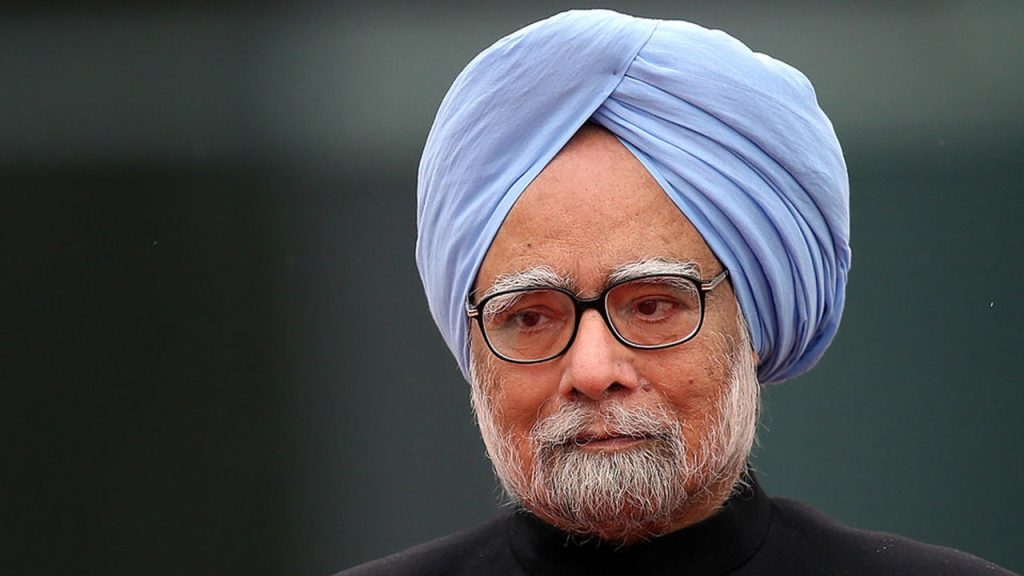FILE – Indian Prime Minister Manmohan Singh arrives at the Chancellery on April 11, 2013 in Berlin, Germany. (Photo by Sean Gallup/Getty Images)
Manmohan Singh, India’s former prime minister, has died. He was 92 years old.
Singh was widely regarded as the architect behind India’s economic reform program and is credited with striking a landmark nuclear deal with the United States.
The former prime minister was admitted to New Delhi’s All India Institute of Medical Sciences late on Thursday after a “sudden loss of consciousness at home.” He was “being treated for age-related medical conditions” before he passed, according to a hospital statement.
Prime minister for 10 years
Singh was one of India’s longest-serving prime ministers and was the leader of the Congress Party in the Parliament’s Upper House.
He earned a reputation as a man with great personal integrity and was chosen to fill the role of prime minister in 2004 by Sonia Gandhi, the widow of assassinated Prime Minister Rajiv Gandhi.
2nd term and scandal
Singh was reelected in 2009 but his second term was clouded by financial scandal and corruption charges over the organization of the 2010 Commonwealth Games.
This is what led to his party’s defeat in the 2014 national election by the Hindu nationalist Bharatiya Janata Party.
Academic career
Due to his shining academic acumen, Singh was able to leave his village and continue his education at Cambridge University in the United Kingdom where he earned a degree in economics in 1957, according to the Indian National Congress website.
He proceeded to get a doctorate degree, also in economics, from Nuffield College at Oxford University in 1962.
1st Sikh prime minister
Singh taught at Panjab University and at the Delhi School of Economics before he joined the Indian government in 1971 as an economic adviser.
In 1982, Singh took on the role of chief economic adviser to the Finance Ministry and served as the deputy chair of the Planning Commission and governor of the Reserve Bank of India.
Singh kicked off reforms that opened up India’s economy into a capitalist model and helped skirt a potential economic crisis in 1991.
Under Singh, India adopted a Right to Information Act in 2005 to promote accountability and transparency from government officials and bureaucrats. He was also instrumental in implementing a welfare scheme that guaranteed at least 100 paid workdays for Indian rural citizens.
The coalition government he headed for a decade brought together politicians and parties with differing ideologies that were rivals in the country’s various states.
US-India nuclear deal
In a move hailed as one of his biggest achievements apart from economic reforms, Singh ended India’s nuclear isolation by signing a deal with the U.S. that gave India access to American nuclear technology.
But the deal hit his government adversely, with Communist allies withdrawing support and criticism of the agreement growing within India in 2008 when it was finalized.
Singh adopted a pragmatic foreign policy approach, pursuing a peace process with nuclear rival and neighbor Pakistan. But his efforts suffered a major setback after Pakistani militants carried out a massive gun and bomb attack in Mumbai in November 2008.
He also tried to end the border dispute with China, brokering a deal to reopen the Nathu La pass into Tibet, which had been closed for more than 40 years.
His 1965 book, “India’s Export Trends and Prospects for Self-Sustained Growth,” dealt with India’s inward-oriented trade policy.
Singh is survived by his wife Gursharan Kaur and three daughters.

